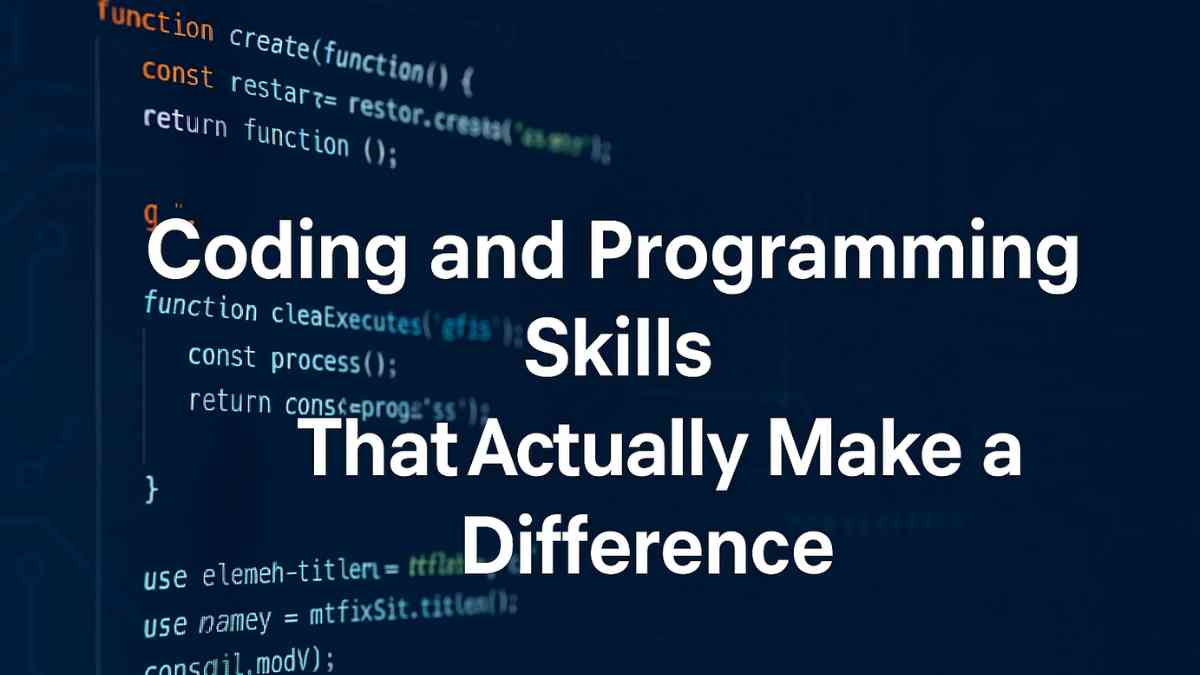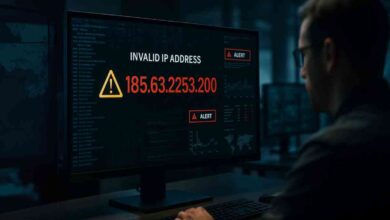Coding and Programming Skills That Actually Make a Difference
A no-nonsense guide to building skills that employers notice and projects benefit from

In a world where lines of code build our digital realities, not all coding skills carry equal weight. While learning syntax is where most developers start, what truly sets apart a great programmer is a mix of practical knowledge, thoughtful problem-solving, and the ability to adapt. If you’re on a mission to become someone who doesn’t just code — but codes with purpose — this guide is for you.
Let’s dive deep into the essential coding and programming skills that genuinely make a difference, whether you’re just starting your journey or looking to fine-tune your craft.
Start With the Fundamentals
You can’t skip the basics. Core concepts like loops, functions, conditionals, data types, and arrays lay the groundwork for every program you’ll ever build. These elements may seem simple at first, but they’re the building blocks of more advanced logic.
A strong foundation also means understanding how code flows, how memory is managed, and what happens when your program runs. Don’t rush this stage. It’s what separates those who know how to write code from those who know how to think in code.
Think in Terms of Problems, Not Just Code
If there’s one skill that defines a programmer who adds real value, it’s problem-solving. You can know all the syntax in the world, but if you can’t break down a problem, identify patterns, or design a logical solution — you’ll struggle to apply your knowledge.
Focus on understanding the why behind your code. Platforms like LeetCode, HackerRank, and CodeWars are great for practicing this kind of thinking. Start small, build your muscle for breaking down a problem, and refine it over time.
Code That Others Can Read
Good code isn’t clever — it’s clear.
When working in teams, maintainability and readability matter far more than showing off your skills with clever one-liners. Write in a way that your future self or another teammate could jump in and understand what you were doing. Use meaningful variable names. Keep your functions focused and concise. And yes, leave comments where necessary, especially when the logic isn’t immediately obvious.
Well-formatted, clean code creates trust, and it’s something employers notice fast.
Master Version Control Like Git
Version control is more than just knowing how to push and pull from a Git repository. It’s about understanding how to manage branches, resolve conflicts, and maintain clean histories. Version control is the safety net that allows teams to work in parallel without stepping on each other’s toes.
If you’re not using Git fluently yet, start learning it today. Practice making commits, rolling back changes, and handling merges. Tools like GitHub and GitLab aren’t just repositories — they’re collaborative hubs.
Learn to Debug, Not Just Build
Debugging is where real learning happens. It sharpens your analytical thinking, helps you understand code behavior more deeply, and teaches patience. A good programmer knows that code rarely works perfectly the first time — and that’s okay.
Start by using built-in debugging tools in IDEs like VSCode or Chrome DevTools for frontend work. Understand how to set breakpoints, step through code, and inspect variable states. And more importantly — learn how to stay calm when things go wrong. That mindset is what separates professionals from beginners.
Testing Is a Sign of Discipline
Testing isn’t optional in professional environments. Whether it’s unit testing, integration testing, or end-to-end testing, having confidence that your code works as expected is a must.
Learn frameworks relevant to your stack (like Jest for JavaScript or PyTest for Python). Write tests as you go. This habit will help you avoid bugs, ship faster, and maintain code quality over time.
Be Comfortable With Being Uncomfortable
Technology evolves. What you learn today may shift tomorrow — and that’s part of the job. The most effective programmers aren’t those who memorize everything, but those who know how to learn quickly.
Use official documentation. Read blogs. Follow developers on GitHub. Ask good questions on Stack Overflow. Stay curious and humble. Your ability to learn and adapt will outshine any single framework or language on your resume.
Communicate Like a Human, Not a Machine
No matter how strong your technical skills are, if you can’t communicate clearly, you’ll struggle to work in teams or pitch ideas.
Practice explaining your code and logic in simple terms — to a colleague, mentor, or even to yourself. Take part in code reviews and be open to feedback. Learn how to ask better questions and how to offer help in a supportive way.
Soft skills like empathy, listening, and clear communication are often what elevate a good developer to a great one.
Build Projects That Matter to You
Don’t just follow tutorials — create your own projects. Whether it’s a personal website, a budgeting app, or a small tool to solve a problem at home, these projects will teach you more than any course ever could.
Focus on shipping something usable. Done is better than perfect. And once you build something, show it off. Add it to your GitHub, write a short README, and include a brief description of the tools you used and the challenges you overcame.
This builds both confidence and credibility.
Stay Consistent Without Burning Out
You don’t need to code 10 hours a day. In fact, that’s not sustainable for most people. What you do need is consistency. Even 30–60 minutes a day can move you forward if done with focus and intention.
Mix up your learning: some days watch videos, others build features, and some days just read someone else’s code. It’s all progress. The key is to avoid comparison traps and keep showing up.
Coding in the Real World Requires More Than Syntax
Ultimately, the skills that make a real difference aren’t flashy. They’re often the quiet, steady practices that take time to build. The developers who succeed long-term aren’t just those who know the latest tools — they’re the ones who can solve problems, write maintainable code, learn on the fly, and collaborate well.
Focus on the long game. That’s where the real impact lies.
Conclusion
In the world of code, it’s easy to get distracted by shiny new frameworks, trendy languages, or fast-paced tutorials. But the skills that actually make a difference — the ones that hold up under pressure, scale in teams, and leave a lasting impact — are often quiet, consistent, and deeply rooted in fundamentals.
Whether you’re debugging your first function, pushing your tenth Git commit, or shipping a side project that solves a real problem, remember this: the goal isn’t just to write code — it’s to write code that matters.
Pick one skill from this list and take action on it today — even if it’s just 15 minutes. Progress starts with one line of code.
FAQs
1. Do I need to learn multiple languages to be a good programmer?
No. Mastering one language deeply is better than knowing many superficially.
2. How do I know if I’m improving?
When your code breaks less, and when you can solve problems faster — you’re getting better.
3. Is competitive coding necessary?
It helps, but real-world project work and clean code matter just as much.
4. Can I become a good programmer without a degree?
Absolutely. Portfolios and practical skills often matter more than credentials.
5. How long does it take to become job-ready?
It varies, but with consistent effort, many reach a solid level within 6–12 months.



